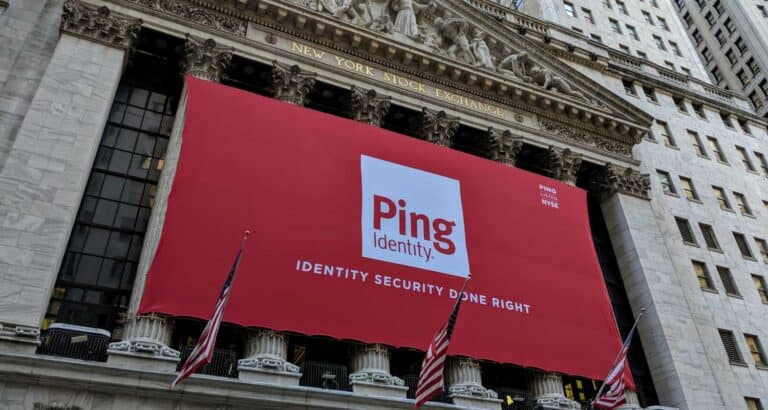Private investor Thoma Bravo announced the acquisition of Ping Identity. Ping Identity develops access management solutions. Thoma Bravo intends to acquire the company for $2.8 billion (€2.75 billion).
Ping Identity’s announced its quarterly results on the same day as the acquisition. Revenue totalled $72 million, well below analyst expectations. Ping Identity struggles with an unfavourable market. Investors are cautious due to inflation.
Thoma Bravo is an exception to the rule. The private investor focuses on companies with disappointing results, scaleups out of growth money and organizations postponing an IPO. Anaplan was acquired for $10.7 billion dollars in March. SailPoint followed in April. The most recent acquisition is Ping Identity, a provider of access management solutions.
Thoma Bravo pays $2.8 billion and hopes to delist Ping Identity from the stock exchange. The deal isn’t final yet. Ping Identity and Thoma Bravo expect an accord from regulators before the end of the year.
Ping Identity
Ping Identity’s technology is doing well. The company develops two access management products: one for employees and one for customers. PingOne for Customers secures customer access to company systems. PingOne for Workforce secures employee access to company systems. The company partners with major players, including CrowdStrike.
Although Ping’s userbase is growing, the cash flow steadily declines. Recurring revenue rose to $341 million in the latest quarter, up 22 percent year-over-year. Despite the trend, Ping Identity closed the quarter with $8.4 million in debt, while the company held over $30 million dollars in cash last year.
An acquisition seemed the best option. $2.8 million is a better prospect than an ever-declining share price. “We are pleased to partner with Thoma Bravo, which has a strong track record of investing in high-growth cloud software security businesses and supporting companies with initiatives to turbocharge innovation and open new markets”, Ping Identity CEO Andre Durand said.
Tip: Security industry is fundamentally broken: base investments on hard evidence
